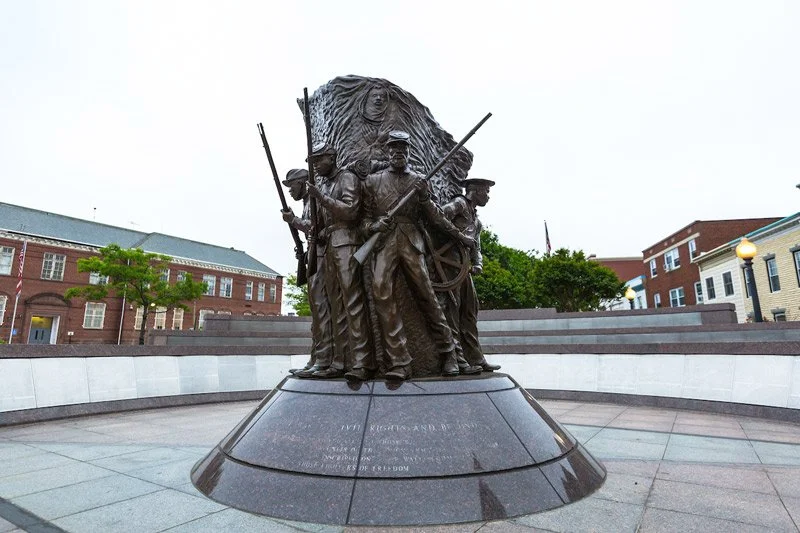Honoring Black Veterans in D.C.: Service, Legacy, and the Work Still Ahead.
This Veterans Day, WHUT honors the generations of Black servicemembers whose courage has shaped America’s story—and whose presence in Washington, D.C. has transformed the capital in profound ways. From the United States Colored Troops to today’s active-duty and retired personnel, Black veterans have long been protectors, builders, and leaders whose contributions continue to guide the region.
In the aftermath of the Civil War, Black soldiers who served in the United States Colored Troops helped lay the groundwork for a new vision of citizenship. Their sacrifice is preserved at the African American Civil War Memorial Museum, a cornerstone of D.C.’s historic U Street corridor that keeps alive the names and stories of over 200,000 Black men who fought for freedom.
Source: African American Civil War Musuem
By World War I, Washington had become home to thousands of Black veterans—many of whom would play powerful roles in community defense, especially during the 1919 “Red Summer,” when returning Black servicemembers organized to protect their neighborhoods against racial violence.
D.C. also shaped national leaders like General Benjamin O. Davis Sr., a native Washingtonian who became the first African American general in the U.S. Army and an enduring symbol of perseverance, excellence, and military leadership.
Source: thenmusa.org.
The impact of Black veterans didn’t end with their military service. Many brought home hard-earned expertise, discipline, and a sharpened commitment to equity—attributes that made them natural leaders in the civil rights movement. Their activism and organizational power are documented by groups like the Disabled American Veterans.
And in Washington, that legacy is distinct. From defending the city during periods of racial unrest to shaping political advocacy across the District, Black veterans helped anchor D.C.’s fight for justice and community self-determination.
Today, Black veterans in the DMV continue to lead, serve, and strengthen communities—yet they also face persistent disparities in healthcare access, mental-health support, housing stability, and benefits navigation. Veterans Day is not only a moment to honor their service; it is an invitation to support them more fully throughout the year.
A Call to Action for D.C.
If you’re in the Washington, D.C. area, consider ways to engage:
Visit sites like the African American Civil War Memorial Museum to learn more about Black service members.
Support local veteran-led or veteran-serving organizations in the District that focus on Black veterans’ needs (housing, employment, mental health).
Advocate for equitable funding and recognition for veteran services in D.C., particularly looking at how race and community affect access and outcomes.
Engage with and elevate stories of Black veterans in D.C.—share them, support oral-history efforts, volunteer with veteran-community groups.
Veterans Day is more than a date on the calendar—it’s a moment to reconnect history, community and service. In D.C., the legacy of Black veterans is strong: they helped defend this nation, shape its capital, build its institutions, and now their stories offer inspiration and impetus for justice and support. Let’s honor that not just today, but in our actions going forward.


